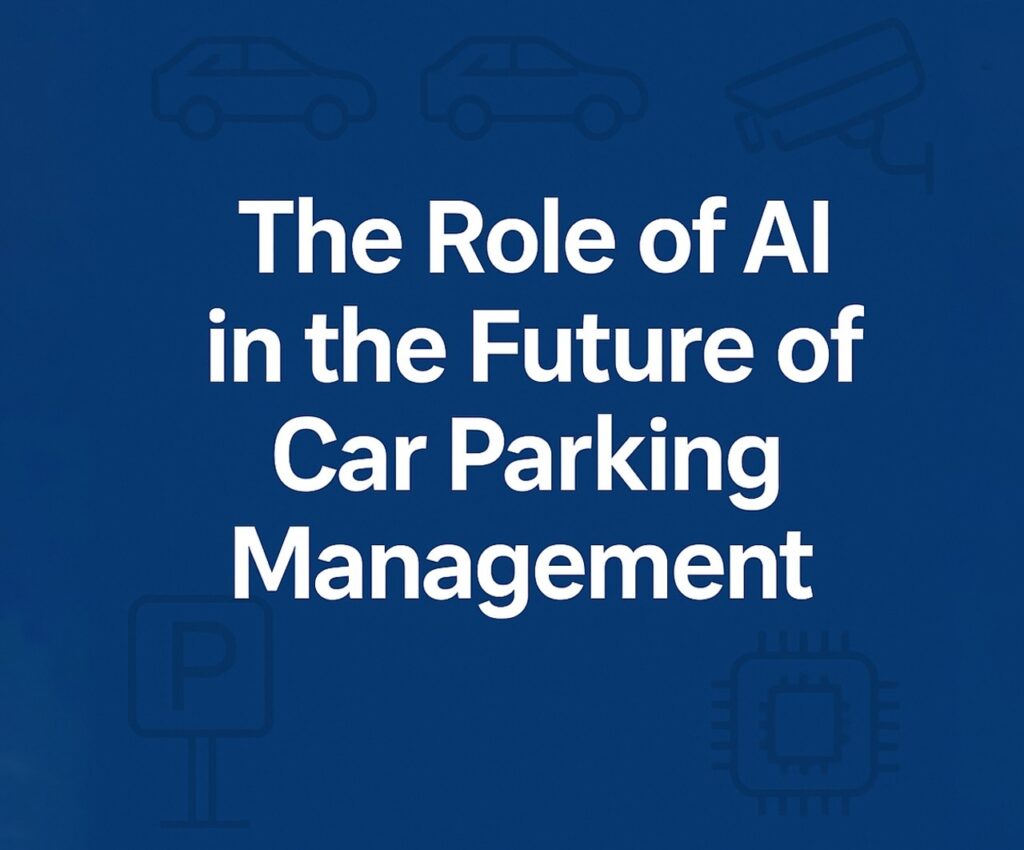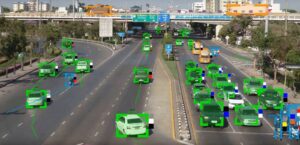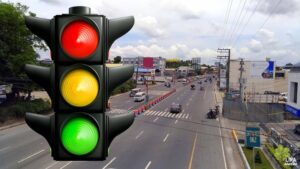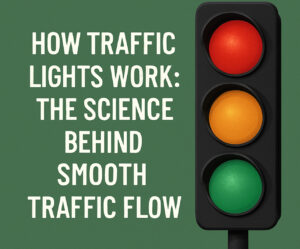As urban areas continue to grow and the number of vehicles on the road increases, finding a parking spot has become a daily frustration for many drivers. The rise of the smart parking system, smart car parking system, and smart parking management system offers a promising solution to this issue. These AI-powered systems are revolutionizing the way cities handle parking logistics, making the process faster, more efficient, and less stressful for both drivers and city planners. Know more..
What Is a Smart Parking System?
A smart parking system uses a combination of sensors, real-time data collection, mobile apps, and artificial intelligence to manage parking availability. These systems detect open spots and guide drivers to them, eliminating the need for aimless circling. They can also enable features like dynamic pricing, reservation options, and automated payment.
A smart car parking system goes a step further, incorporating vehicle recognition technologies, predictive analytics, and even automated valet systems. In some cities, these systems are integrated with public transportation apps, allowing commuters to plan their entire trip—from parking to their final destination—with minimal hassle.
The smart parking management system handles the backend of these operations. It analyzes traffic patterns, monitors occupancy rates, and adjusts regulations or pricing based on real-time data. All of these components work together to streamline urban mobility and reduce parking-related congestion.
The Benefits of AI-Powered Parking
AI is the brain behind these smart parking systems. By continuously analyzing data, AI algorithms can predict peak usage hours, recommend optimal pricing, and suggest when to open or close certain lots. This leads to better space utilization and less wasted time.
Some of the major benefits include:
- Reduced congestion: Up to 30% of urban traffic is caused by drivers searching for parking. AI helps minimize this.
- Improved user experience: Real-time availability and mobile integration simplify the parking process.
- Lower emissions: Less time on the road means reduced fuel consumption and fewer carbon emissions.
- Dynamic pricing: AI enables cities to adjust parking fees based on demand, maximizing revenue and balancing usage.
- Enhanced enforcement: Systems can detect violations and alert authorities in real time.
Real-World Applications
Many cities are already leveraging AI to enhance their smart parking management systems. For example, San Francisco’s SFpark program uses real-time data to adjust pricing and availability dynamically. This approach has led to a noticeable reduction in congestion and better turnover in high-demand areas.
In Amsterdam, the city has deployed a network of sensors across parking lots that communicate directly with mobile apps. Drivers receive turn-by-turn directions to the nearest available space, dramatically cutting down search time.
Airport parking lots in cities like Dubai now feature smart car parking systems that use number plate recognition to automate entry and exit, send notifications for available spaces, and even remember preferred parking zones for frequent travelers.
Retail centers and corporate campuses are adopting smart parking systems to improve customer experience. By integrating parking with digital loyalty programs, they can offer perks such as reserved spots or discounted rates for frequent visitors.
Integration with Autonomous Vehicles
As self-driving cars become more common, smart parking systems will play a critical role in managing how these vehicles park. AI can coordinate multiple autonomous vehicles, ensuring they drop off passengers efficiently and park themselves in designated areas without human intervention.
Future-ready smart car parking systems may include:
- Vehicle-to-infrastructure communication
- Automated valet parking
- Real-time data exchange with traffic management systems
- AI navigation within parking facilities to avoid congestion and optimize placement
These capabilities will significantly reshape how we think about vehicle storage in urban environments.
Smart Parking for Events and High-Demand Scenarios
Large events, such as concerts, sports games, and festivals, can create parking chaos. A smart parking management system can anticipate these surges by using historical data and ticket sales to prepare in advance. AI can reserve space, manage pricing to encourage early arrival, and direct overflow traffic to secondary lots.
In high-demand scenarios, smart systems can prioritize certain users—like emergency vehicles, vendors, or VIPs—and adjust signage and guidance accordingly. This kind of flexibility isn’t possible with traditional static parking setups.
Cities are also experimenting with temporary smart parking zones using mobile sensors and modular signage. This allows them to quickly adapt underused space for parking in high-demand periods and reverse it afterward.
Challenges and Considerations
Despite the many benefits, implementing a smart parking management system comes with challenges:
- High installation costs: Setting up sensors, servers, and connectivity infrastructure requires significant investment.
- Data privacy: Tracking vehicle locations and usage must be balanced with user privacy rights.
- System maintenance: Technology can fail, and constant updates are required to keep systems reliable.
- Integration complexity: Combining various hardware and software systems—especially across jurisdictions—requires careful planning.
Cities must also consider user adoption. Drivers unfamiliar with smart car parking systems may resist changes or struggle with app-based systems. Public education campaigns and user-friendly interfaces are critical to ensuring smooth transitions.
The Economic and Environmental Impact
The implementation of smart parking systems doesn’t just help drivers—it also benefits city budgets and the planet. With more efficient use of existing parking space, cities can defer the need to build expensive new lots or garages. This reduces land usage and preserves space for green zones or development.
Environmentally, less driving means cleaner air. Cities with robust smart parking management systems report measurable drops in CO2 and NOx emissions. Electric vehicle (EV) integration is also improving. Many systems now incorporate real-time data on EV charging station availability, helping eco-conscious drivers plan better.
Parking as a Service (PaaS)
Another emerging trend is “Parking as a Service.” With a smart parking system, cities and private lot operators can offer monthly subscriptions, corporate plans, or hourly access—all managed through one digital platform. AI handles pricing, access control, and analytics, turning parking into a flexible, user-oriented service.
PaaS can help urban planners better understand usage patterns and invest resources more wisely. It also allows businesses to better manage parking for employees and clients, improving operational efficiency.
The Future of Parking
As cities become smarter, parking will no longer be a passive, frustrating experience. The rise of the smart parking system, smart car parking system, and smart parking management system signals a shift toward proactive, intelligent city design. We can expect to see:
- Fully automated lots that manage themselves with minimal human input
- AI-driven demand forecasting that aligns parking availability with urban events or peak hours
- Increased sustainability, with smart systems supporting electric vehicle charging stations and reducing unnecessary driving
- Multimodal integration, allowing seamless transitions between driving, biking, walking, and public transportation
AI is transforming parking from a headache into a well-orchestrated process. And as adoption grows, drivers will spend less time circling and more time where they actually want to be.
Final Thoughts
The parking problem is solvable—and AI is the key. With the rapid development and deployment of smart parking systems, cities can create cleaner, more efficient, and more enjoyable urban spaces. These systems reduce stress, save time, and help cities operate more sustainably.
In the future, you won’t just find a parking spot. It will find you, thanks to the power of the smart car parking system and the intelligent infrastructure that surrounds it.





